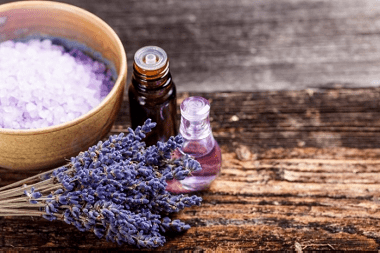Phytotherapy >>>> Aromatherapy is a treatment and a pleasure at the same time
Aromatherapy is a treatment and a pleasure at the same time.

Since ancient times, fragrances have attracted attention with their multifaceted properties: they had a calming effect, improved mood, prevented bacterial and viral infections, and replaced modern cosmetic and spa procedures. Volatile plant substances - phytoncides, which form aromas, play different roles for plants: a pungent smell scares away pests, a fragrance attracts pollinating insects. These properties of phytoncides played a decisive role in their use for the benefit of human health.
Modern medicine has adopted many of the properties of plants used in antiquity, modernized them and now uses them to treat and prevent various health disorders. People have learned to isolate fragrances, concentrate them, and distribute them in usable forms (essential oils).
Essential oils have contraindications for use, although they are very popular in the modern world:
- Allergic reactions;
- Diseases of the respiratory system, for which the phytoncides of some plants will become an irritating factor: asthma, respiratory failure, tuberculosis, chronic bronchitis, emphysema and similar lung diseases;
- Diseases of the psyche, associated with intolerance to pungent odors;
- Hypersensitivity of the skin and mucous membranes (nose, nasopharynx, mouth, esophagus, etc.) to the irritating effect of phytoncides.
Aromatherapy for mood.
Plants with the most attractive scents for mood enhancement and soothing:
- Lavender,
- Rose flower,
- Ylang-ylang,
- Jasmine,
- Conifers,
- Chamomile,
- Nutmeg,
- Cinnamon,
- Myrtle.
Such plants are added to the bath, used in the form of aromatic candles. There is no need to go to an expensive spa salon to take advantage of the delights of aromatherapy, it can be done at home, the main thing is not to overdo it with concentration, otherwise instead of calming you will get an irritating state.
Aromatherapy treatment.
Plants whose phytoncides are good for preventing flying infections:
- Garlic,
- Eucalyptus,
- Sage,
- Rosemary,
- Thyme (Thyme creeping),
- Geranium,
- Lemon,
- Frankincense (resin - incense),
- Basil,
- Marjoram,
- Carnation,
- Ginger.
Such plants can be kept at home as potted crops, when they touch or move air masses in the room, they begin to exude their aromas, which contributes to the disinfection of the air in the room, its deodorization.
Infusions from these plants (with the exception of geranium, incense) are used for baths and rinsing of mucous membranes for antiseptic purposes. Infusions can be added with preliminary filtering through a fine filter when bathing in a bath, wash with diluted infusions, freeze them in ice cubes for washing and other tonic procedures.
Plants that have a beneficial effect on the respiratory system:
- Pine,
- Cedar,
- Juniper,
- Larch.
These plants are used as plantings to enrich the atmosphere with oxygen, for example, a backyard, a greenhouse. The needles are collected and made from them decorative pillows and bags for aromatherapy during sleep. Pillows and pouches are placed next to bedding or hung at the head of the bed.

Read

Read



























